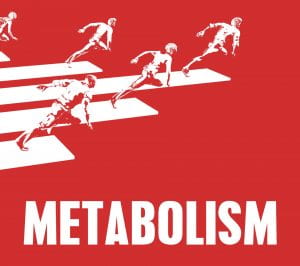
Talk to people who are middle-aged or older about body weight, and you’ll likely hear them complain about how their metabolism has slowed down. But our commonly held beliefs about metabolism – primarily, that it slows for older people and women – are likely completely wrong, according to a new groundbreaking study published in the journal Science this month.
The paper is unique for two reasons. It is one of the largest studies of metabolism – with nearly 6,500 participants ranging in age from newborn babies to 90-year-olds. (Sixty-three co-authors from around the world contributed to the paper.)
The paper also uses the gold-standard technique for measuring metabolism, which determines how many calories someone is burning by measuring the carbon dioxide they exhale. This method is not typically used in large studies because it’s expensive. The co-authors combined this information with data about participants’ height, weight, and percentage of body fat.
The findings using this large pool of data suggest that many of our commonly held beliefs about metabolism are wrong.
First, after controlling for body size and muscle mass, the researchers found there are no metabolic differences between men and women. (Yes, it still holds true that larger bodies and those with more muscles burn more calories.)
Researchers also found our metabolisms go through four distinct stages through the life course.
From birth until age one, our metabolisms speed up. A 1-year-old’s metabolism is at its peak rate – about 50 percent above the standard adult rate. (Of course, this doesn’t mean 1-year-olds eat 50 percent more food than their parents, because their bodies are smaller they require less energy.)
From ages 1 to 20, our metabolisms gradually slow by about 3 percent a year. Then, starting at age 20, our metabolisms hold steady until age 60. (Remember, metabolism still fluctuates based on body size and muscle mass, just not based on age.)
After age 60, metabolisms do start to slow, by about 0.7 percent a year. This results in approximately a 20 percent overall decline by age 95. A 95-year-old will need about 20 percent fewer calories than she did when she was 60, assuming her weight and muscle mass don’t change much.
Of course, researchers point out, that most people’s metabolisms will vary from the average. Throughout your life, you might require 10 percent more calories than the average for your age, or 10 percent less.
This new paper has implications across the medical field. It may reshape our understanding of nutrition, obesity, and weight loss over the life span. It may also help doctors better determine drug doses for children and older adults.
The take-home message: A pivotal study has changed the way we understand how our metabolisms function across the life span.



Speak Your Mind